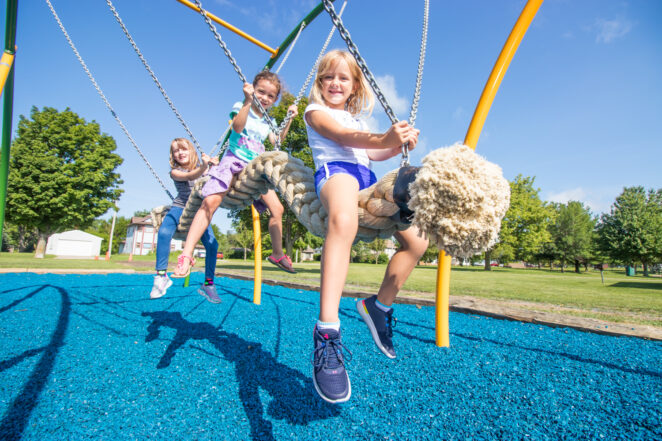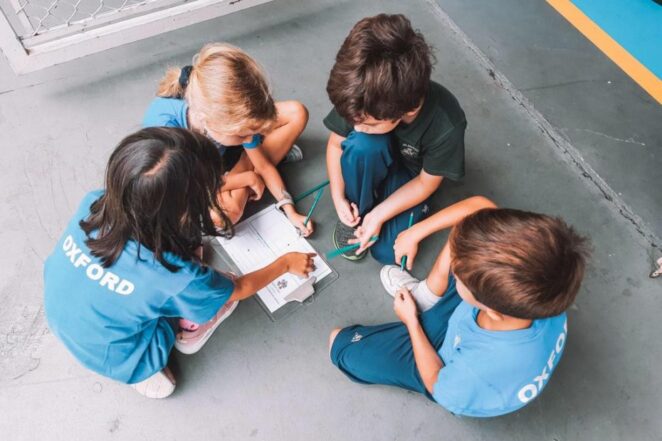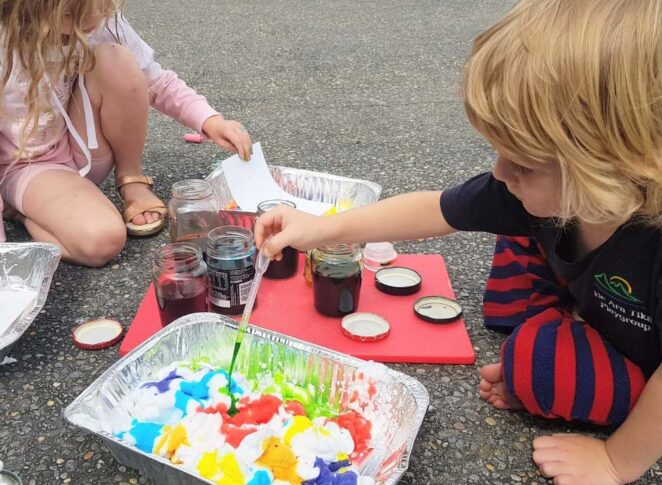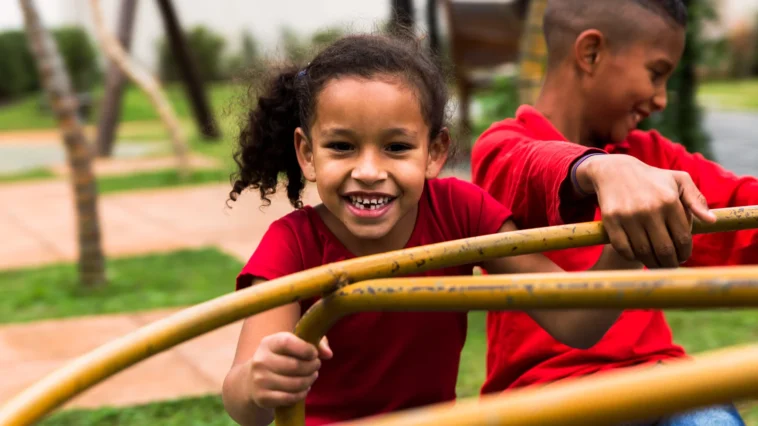Outdoor play equipment is an exciting and inviting addition to the early years playground, encouraging children to get moving and start having fun in a healthy, outdoor environment. Early years playground equipment has a lot of amazing benefits, including:
- Helping preschoolers get their 3 hours a day of physical activity
- Helps kids develop fine and gross motor skills
- Encourages time in nature
- Encourages imaginative and creative play
- Helps kids to have time away from screens
Early years outdoor play equipment also has substantial benefits when it comes to the social development of very young children. For this reason, it is a top priority if you are adding equipment to your under 5’s outdoor play area.
Let’s take a closer look at how early years play equipment helps children to bond and socialise, so you know exactly why it’s a great idea for your nursery or backyard:
Teamwork

Playing with outdoor equipment encourages young children to work in teams.
Perhaps they are solving a play puzzle, or creating games in a mud kitchen – these options, amongst others, encourage working together. This helps early learners to harness the idea of collaboration, sharing ideas and sharing emotions and encourages learning from peers. This kind of group work exposure and opportunity to take part in teamwork is also foundational, helping your child to learn social skills that they will take through to adulthood.
Speaking
Without any central focus children may be shy or have limited reason to use language skills. With play equipment like towers, imaginative play centers, and mud kitchens, they can gain confidence and use their language skills to share ideas, and communicate emotions. The equipment is a common interest so it’s a natural starting point for speaking and developing language around that central stimulus.
Sharing
Lots of children struggle to share in their early years because they are used to having their toys to themselves at home, or they have their own toys separated from siblings. When they have to share play equipment and toys they have to learn to respect other children, and to wait their turn. This is an important social lesson that can also encourage children to learn to be kind to one another, and to learn empathy and simple emotional dynamics.
Learning Independence & Coping With Being Away From Adults

Adults are always supervising young children during play, but when early learners socialise with other children they learn to be independent of adults safely, and in an appropriate environment. With play equipment they learn to enjoy time with peers and those at a similar level of maturity, learning to become independent of adults at a grassroots level. This is important for many reasons, but particularly in regards to educational preparation as the children learns to be separated from parents and adult caregivers – and to have fun whilst they are away from home.
A Sense Of Belonging
Collaborating, sharing and interacting with peers gives children a sense of belonging, acceptance, inclusion and support. They can approach a play tower or mud kitchen and become part of a group, making bonds and finding other kids who play like they do, or who like things they do.
Children who feel a sense of belonging are also known to have better mental health and wellbeing, be able to engage in learning with more ease, and feel confident exploring their own sense of self, and the world around them.
“You’ve got a friend in me. You got troubles and I got em too, there isn’t anything I wouldn’t do for you. We stick together, we can see it through cos you got a friend in me.” – You’ve Got A Friend In Me – Randy Newman (Toy Story Soundtrack)
Lots of scientific research tells us that early childhood friendships and bonds are essential for later development, and how well a child does at socialising early on can not only impact later friendships and relationships, but also their ability to do well academically and in a working environment.
To boost the social opportunities for the young children in your care, why not speak to an early years play equipment company today? With their help, you can boost your outdoor play space with high quality, long-lasting playground equipment that helps your little learners have fun, grow strong, enjoy time in nature and make lots of friends.
Tips for Choosing the Right Play Equipment

Choosing the right play equipment for your early years setting not only helps with development, but it also helps to establish positive social bonds between children and aid their social skills. To make sure you are selecting the correct equipment for this purpose, here are some tips to help you:
- Consider the age range of the children – Different pieces of playground equipment may have different levels of difficulty and be suitable for different age ranges. It is important to check which age range a piece of equipment is suitable for before purchasing.
- Take into account the size of your space – When selecting early years playgrounds, it is important to consider whether there is enough space for each piece of equipment so that it can be used safely and properly by all children using it.
- Ensure safety when installing – Before installing any new equipment on your grounds, make sure you consult professionals who specialise in early years playground safety to ensure that everything meets regulations and is hazard-free before being installed properly and securely.
Conclusion
In conclusion, early years play equipment can provide a beneficial environment for children to socialise and bond. By creating opportunities for outdoor play and physical activity, children can build relationships through shared experiences. Furthermore, play equipment encourages children to express themselves physically, emotionally and creatively which facilitates learning through hands-on experiences.




